Innovation in Portal and Its Puzzle Mechanics
Oct-06-2024
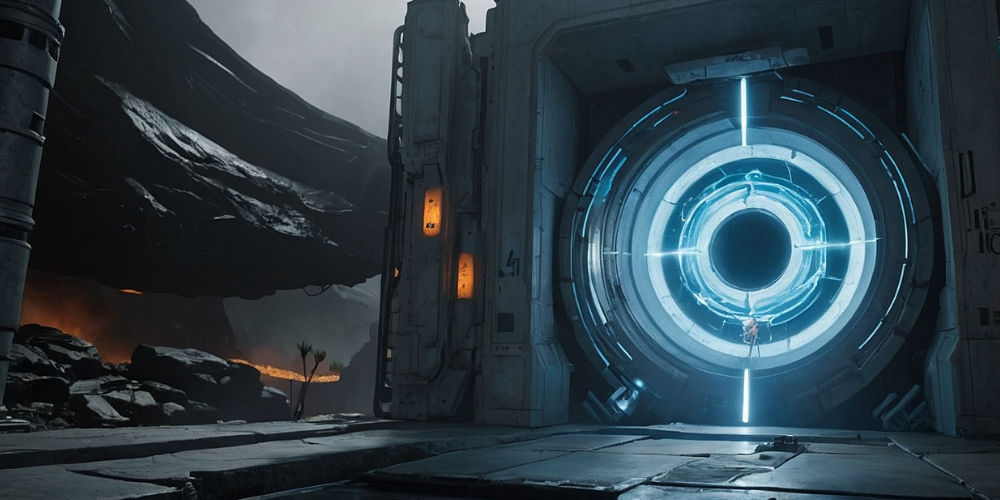
Upon entering the realm of Portal for the first time, I was instantly captivated by its distinctive concept. The idea of a portal gun, a device allowing players to create linked portals on flat surfaces, was not only intriguing but also revolutionary. As someone who has always enjoyed puzzles, the mechanics involved in Portal felt refreshing and intellectually stimulating. I found myself immersed in a labyrinth of challenges that pushed the boundaries of conventional gaming.
The Concept of Portals
At its core, Portal relies heavily on the concept of portals that defy physics. I remember the first time I shot a portal on one wall and then another on the opposite side. It felt like magic as I stepped through and emerged on the other side without losing any momentum. This core mechanic became the basis of the numerous puzzles that I would encounter throughout the game.
Spatial Awareness Redefined
One of the most significant aspects of Portal is the demand it places on spatial awareness. I had to visualize my movements and think critically about how to approach each puzzle. The game teaches players to manipulate their environment not just for traversal but for problem-solving. As I moved through the chambers of Aperture Science, I began to excel at imagining the potential of two-dimensional surfaces in a three-dimensional space.
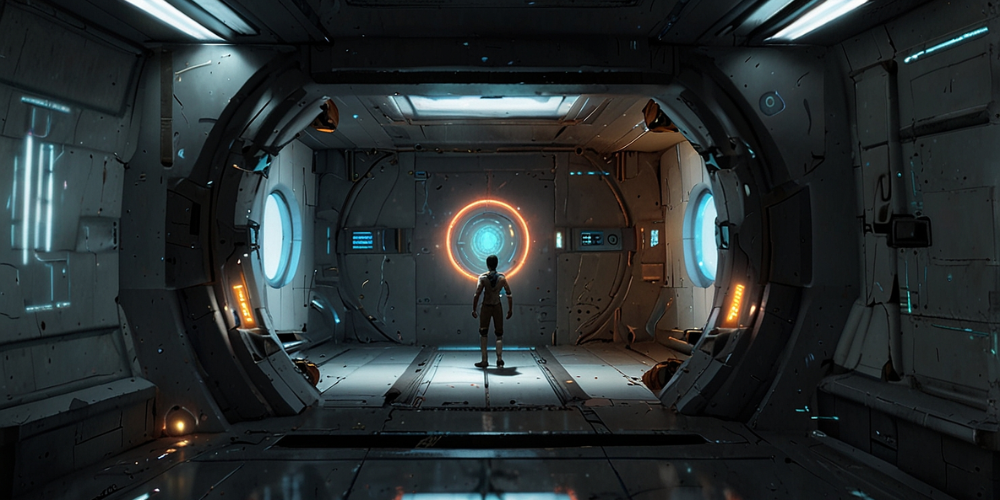
The Engaging Environment
The sterile yet oddly captivating environment of Aperture Science Laboratories added another layer to the experience. I felt an almost eerie ambiance as I navigated the clean hallways and puzzle rooms, where monotony belied the ingenious traps and challenges at play. Each test chamber I entered was meticulously designed, showcasing a balance between creativity and logic.
The Role of GLaDOS
As I progressed through the game, GLaDOS, the omnipresent AI, became my reluctant companion. Her sarcastic remarks and dry humor provided a captivating narrative thread that kept me engaged. The way she commented on my progress—often with a sardonic tone—added depth to the experience, making it feel like a high-stakes game rather than a simple series of puzzles.
Puzzles that Challenge Perception
Each puzzle introduced a new twist that challenged my perception and understanding of the portal mechanics. I vividly recall one chamber that required me to use the portals in unison with other elements, like turrets and energy balls. This juxtaposition of various gameplay mechanics created a rich tapestry of challenges, forcing me to think outside the box constantly.
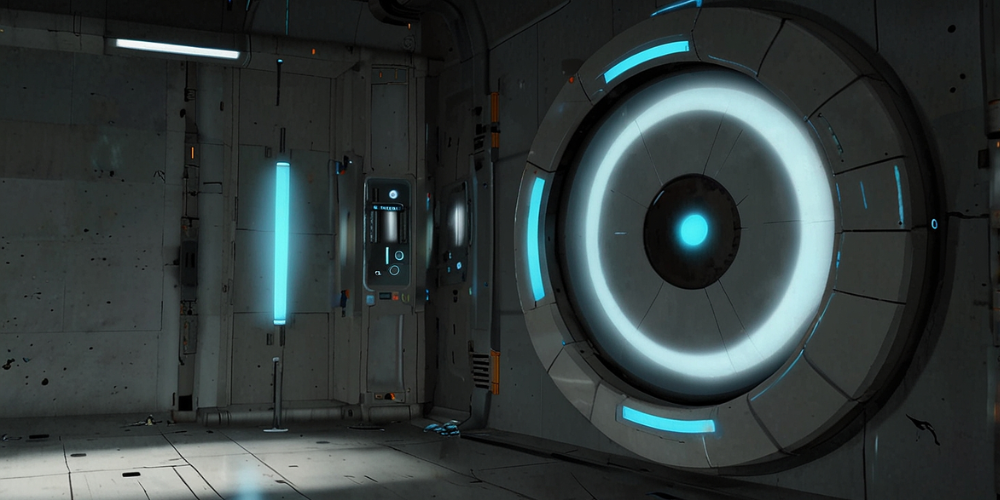
The Importance of Momentum
One of the most exhilarating mechanics in Portal is the preservation of momentum. I remember the first time I used a portal to drop down and then out again, launching myself across the room with incredible speed. This element of gameplay was not only thrilling but also added a layer of complexity to the already intricate puzzles. Understanding momentum became vital in solving many of the later challenges I faced.
Verticality in Puzzle Design
The verticality that the portal mechanics introduced was another game-changer for me. No longer confined to a horizontal plane, I could manipulate my position in the air. I found myself soaring upwards in a vertical test chamber, always strategizing how best to utilize the portals to create a path forward. The ability to think vertically added a new dimension to problem-solving, literally and figuratively.
Combining Elements for Unique Solutions
As I delved deeper, it became clear that many puzzles required the synergistic use of different elements. For instance, I had to strategically place portals in tandem with movable platforms or experiment with using portals in conjunction with redirecting lasers. Each puzzle felt like a mini-ecosystem, where every element served a purpose in leading me to the desired outcome.
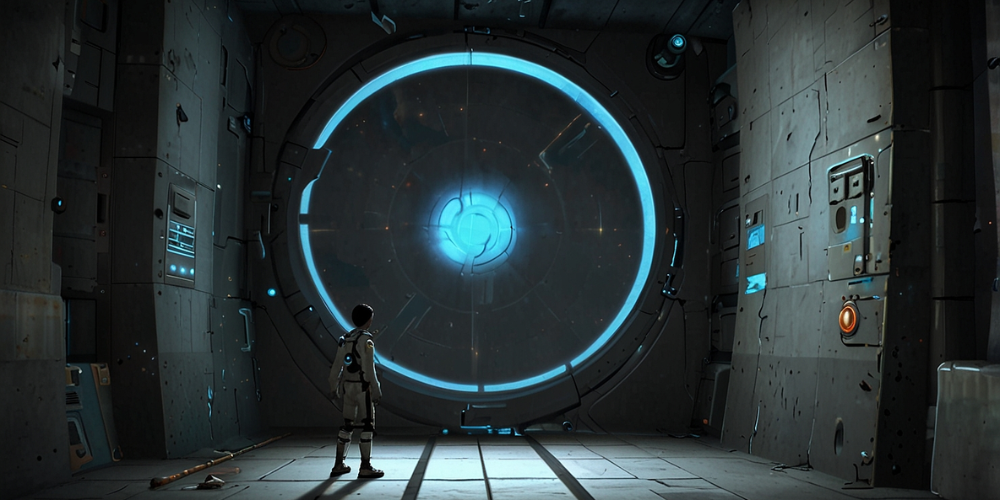
Learning Through Failure
What I loved most was how the game embraced failure as a form of learning. Many times, I would find myself baffled by a challenge, only to have my “Aha!” moment after multiple attempts. Portal provided a safe space to experiment, allowing me to test various approaches without the pressure of dire consequences. It was a reminder that every setback was a stepping stone towards mastering the mechanics.
Visual Storytelling through Minimalism
The minimalist design of Portal was not only aesthetic but functional. It stripped away unnecessary distractions, allowing me to focus entirely on the puzzle mechanics. This philosophy of minimalism extended to the narrative as well. I appreciated how much of the story unfolded through environmental cues and GLaDOS's commentary. It was a refreshing form of storytelling that allowed players to engage with the narrative without heavy exposition.
The Sense of Accomplishment
Finishing each test chamber gave me an incredible sense of accomplishment. I appreciated how each solution built on the last, creating a gradient of learning that made solving later puzzles all the more satisfying. The game maintained a delicate balance, ensuring that I never felt overwhelmed while continually challenging me to expand my understanding of the portal mechanics.
Multidimensional Gameplay
Another remarkable aspect of Portal was how it brought multi-dimensional gameplay to the forefront. As I moved through a single room, I often had to consider multiple variables at play, such as enemy turrets or companion cubes. This complexity kept me on my toes, ensuring that I had to multitask my thinking and spatial reasoning. The game essentially trained me to juggle various challenges simultaneously.
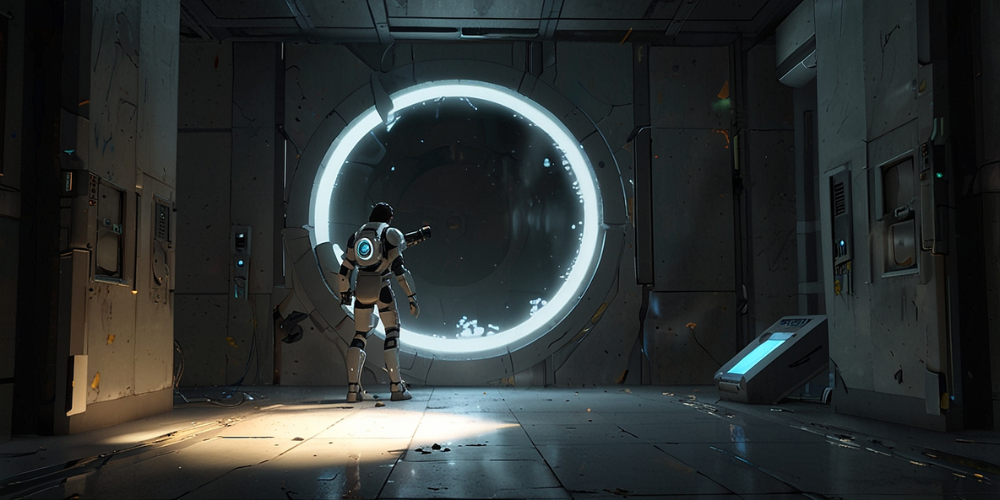
Influence on the Puzzle Genre
Reflecting on my experience with Portal, it is evident how influential the game has been on the puzzle genre. The innovative mechanics have inspired countless other titles, with various games attempting to replicate the unique blend of humor, narrative, and strategic problem-solving that Portal pioneered. I couldn't help but feel grateful for how it had reshaped my understanding of what puzzles could be, opening the door to a wider range of possibilities in gaming.
The Legacy of Portal Innovations
Even after finishing the game, I find myself reminiscing about the innovative mechanics and clever level design. Portal has had a lasting impact not only on my gaming experience but also on the broader landscape of interactive entertainment. The ingenuity I experienced in those test chambers continues to be a template for future games, teaching players about creativity and logic in ways that are both engaging and intellectually rewarding.
Personal Growth through Puzzle Solving
Ultimately, my journey through Portal was not just about solving puzzles; it was about personal growth. I honed my problem-solving skills, learned to think creatively, and developed patience in the face of challenges. The game prompted me to reflect on how I approach obstacles—both in the digital realm and in my daily life. I had not just navigated the puzzles of Aperture Science; I had navigated an enriching experience that left a profound impact.







